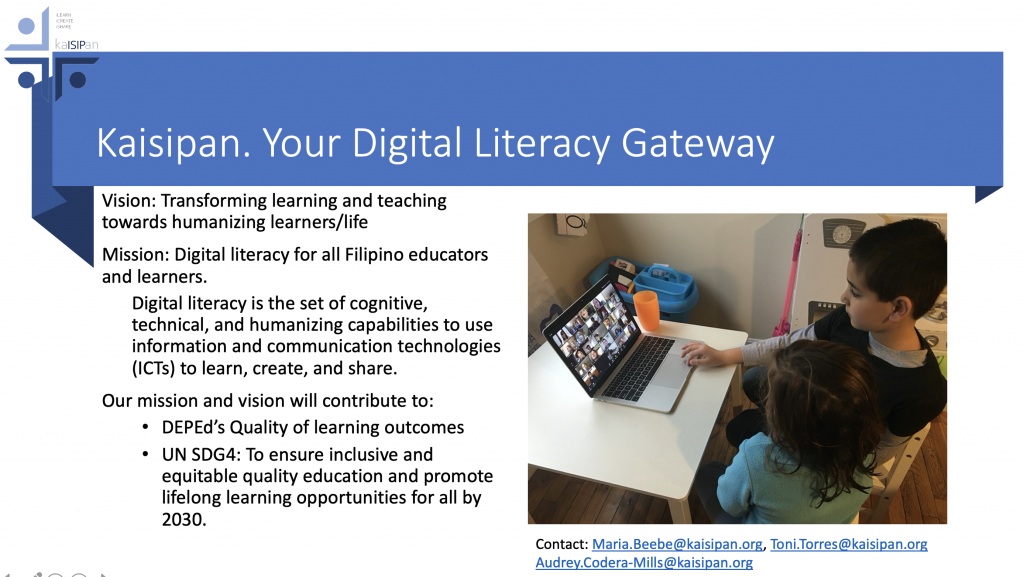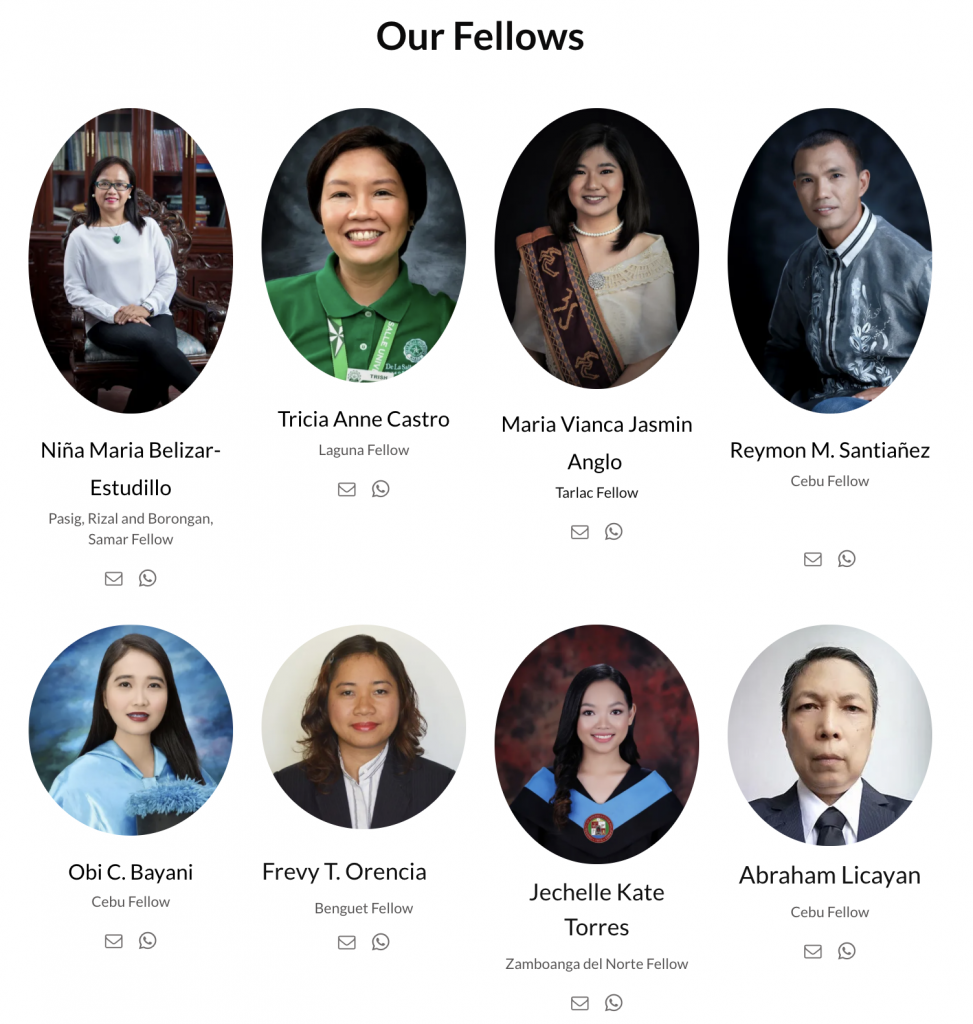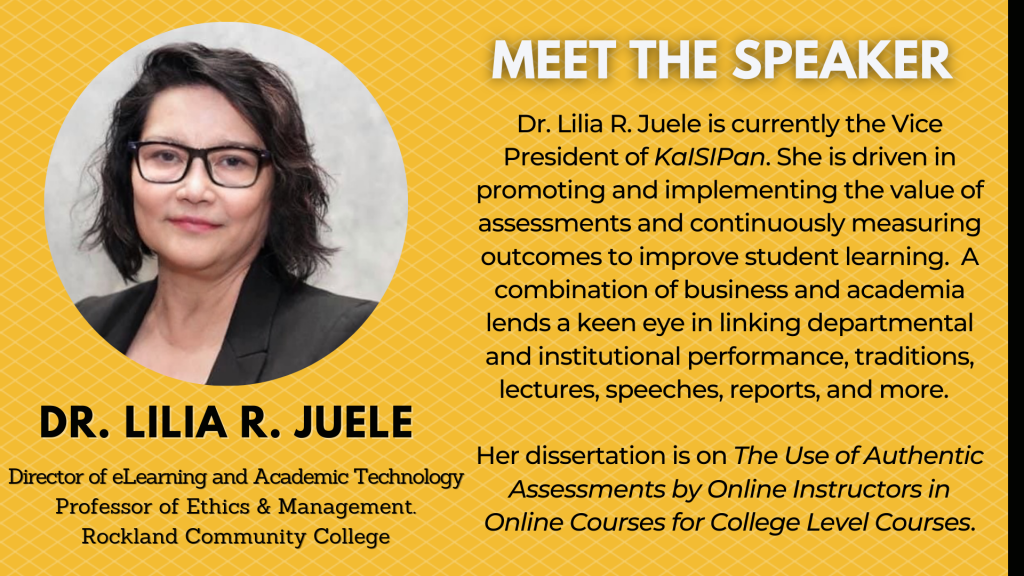Kaisipan. Thinking Together. Giving Back.
By Maria A. Beebe, Ph.D.
THE Philippines scores in the Programme for International Student Assessment (PISA), a standard followed by Organization for Economic Cooperation and Development (OECD), were lowest in Reading, and second lowest in Mathematics and Science in 2018. Although this was the first time the Philippines took the assessment, its focus on core school subjects of reading, mathematics, and science showed that the Philippine education is lagging behind 79 participating countries.
(https://www.oecd.org/pisa/publications/PISA2018_CN_PHL.pdf)
Among the report’s findings are that: only 68% of 15-year-olds took the test suggesting that about 30% may have dropped out of school. Socio-economically advantaged students outperformed disadvantaged students in reading by 88 score points. While girls did better (27 points in reading) and (12 score points in math), girls performed equally well with boys in science. Girls expressed more fear of failure than boys. Only 31% of the 15-year-olds in the Philippines thought that one’s intelligence can be changed. While these findings surprised the academe, researchers, and the international development agencies, Secretary eonor Briones explained that taking the PISA test establishes a global benchmark for the Philippines as it aims to “globalize the quality of Philippine basic education.”
On December 3, 2019, Secretary Leonor M. Magtolis Briones launched the Sulong EduKalidad, which refocused Philippine education to achieving “quality in basic education,” using the acronym KITE, using four pillars as the focus for enabling learners to fly high to reach their potential. These four pillars, are:
- K-12 curriculum update. The guidance requires strengthening teaching and learning in the English language, identified as a clear weakness and because English affects performance in Science and Math.
- Improving the learning environment. Beyond physical facilities, the learning environment must provide learners a safe space for sharing thoughts, views, and experiences.
- Teachers’ upskilling and reskilling. Quality education depends on teachers who can “win inside the classroom,” learn continuously, and innovate. Secretary Briones indicated full support for professional development and continuing education.
- Engagement of stakeholders for support and collaboration. Secretary Briones made a call for “help of all sectors and communities.” Achievement of the KITE dream requires the much-needed engagement of stakeholders.
Kaisipan, as a not-for-profit stakeholder composed of academics and educators from the Philippines and from the Philippine diaspora, is responding to DepEd’s call for assistance in achieving quality of the Filipino students’ learning outcomes and the four pillars for achieving quality in Philippine basic education. When Covid-19 became a pandemic, social distancing measures forced schools to close or move face-to-face classes to remote instruction, despite the lack of resources. Philippine schools were unprepared to deliver synchronous remote/virtual instruction and asynchronous online instruction.
This is Kaisipan’s opportunity to complement DepEd’s efforts on delivering high quality remote and online instruction.
According to Dr. Maria Beebe, president of Kaisipan, “Kaisipan’s vision is transforming learning and teaching towards humanizing learners.” Dr. Beebe explained that “our mission is digital literacy for all educators and learners. We will achieve our vision through a three-pronged approach of harmonizing learner-centered pedagogy, curated and created open content that complements DepEd curriculum, and leveraged last kilometer technologies.”


Kaisipan’s Board of Directors include:
Dr. Maria A. Beebe (president) has made it her personal goal to link higher education with global sustainable development; to balance social and environmental considerations with economic development; and to use information and communication technologies for global engagement. Maria co-edited AfricaDotEdu and edited three books about the leadership of global Filipina women: DISRUPT1.0. Filipina Women: Proud. Loud. Leading without a Doubt (2014); DISRUPT2.0. Filipina Women; Daring to Lead (2016); and DISRUPT 3.0. Filipina Women: Rising (2018). Maria is a Department of Anthropology affiliate at Portland State University.
Dr. Emmanuel C. Lallana (VP) is chief executive of Ideacorp, an independent, non-profit organization focused on Digital Development (ICT for Development) based in the Philippines. He is also author of APCICT Academy of ICT Essentials for Government Leaders modules on ICT for Development (ICTD) Policy, Process and Governance, and Social Media and Development.
Dr. Lilia R. Juele(VP) has extensive experience as a distance/online learning administrator, industry professional, and business professor of strategic planning, marketing and management, research and ethics. Lilia is professor of Business and Technology State University of New York (SUNY) and the Director, Online Education & Academic Technology, Rockland Community College SUNY. She has been awarded The Chancellor’s Award for Excellence by the State University of NY (SUNY).
Antonette “Toni” Tirona Torres’s (secretary) expertise in ICTs runs both wide and deep. Toni is a T-shaped person who is capable of many things and is an expert in more than one technical area in information, communication technologies (ICTs). Toni is an experienced project manager who managed three flagship projects during her stint with the Philippine government. These projects are the National Government Portal, Integrated Government Philippines project, and iSchools project.
Audrey Codera-Mills (treasurer-US) is a highly experienced Program Manager with over 13 years of cross-sector leadership leveraging strategic partnerships, launching high-impact programs, and building resourceful organizational systems. Audrey has applied her expertise locally and internationally, working with government, the international development community, grassroots societies, and individuals.
Dr. Maria Victoria “Marivic” Lualhati (treasurer-Philippines) is owner, president and CEO of Beyond Medical Hub Inc. and corporate secretary of MD Link Diagnostic Center. She is currently the CEO of Tarlac Medical Center. Among her noteworthy accomplishments are authoring scientific papers in quality improvement and customer Relations. She has won twice in the TQM contest in the Philippine Society for Quality Assurance. She is an accredited trainer of Krish Dhanam programs and in-house trainer of Inspire Leadership Consultancy Inc.
Dr. James Beebe is an applied qualitative social scientist, international development anthropologist, educator, and social activist committed to using the tools of the social sciences to promote justice. James wrote the second edition of his book Rapid Qualitative Inquiry: A Field Guide to Rapid Assessment (Rowman and Littlefield, 2014) and his Peace Corps memoir Those Were the Days: A Peace Corps Volunteer in the Philippines in the Late ’60 (Peace Corps Writers, 2014).


In June 2020, 12 Kaisipan fellows attended the International Society for Technology in Education (ISTE) Summer Learning Academy. As fellows, they pledge to echo what they have learned about teaching in an online environment.
Kaisipan launched a series of virtual/remote synchronous webinars and eforums in August 2020. Dr. Lilia R. Juele (Kaisipan VP) gave a keynote presentation on Designing and Teaching Online Courses on August 11, 2020. The agenda included: Types of Delivery Format, Online /Virtual (Remote) Learning, Learning Theories, Instructional Design, Instructional Design Models, Bloom’s Taxonomy, Online Course Design Model, Modular Course Design, Community of Inquiry (CoI), Assessments, and Course Alignment.
Maria Elena Mendoza and her team from Mood Learning provided a demonstration of the features of a Learning Management System on August 12, 2020 and made available a self-paced tutorial that can be completed in 6 hours. The tutorial covers introductory materials for the teacher role, the user roles and groups that a teacher can manage, resource types that a teacher can deploy as well as examples of activities. The LMS features on assessments, modalities of collaboration and communication, and analytics and reports that could be generated were also covered.
Niña Maria Belizar-Estudillo, a Kaisipan fellow led the Kaisipan eforum on Building a Digital Literacy Competency Framework for Educators. Niña identified the forum learning outcomes as follows: The participants will be able to (1) explain the concepts and principles of digital literacy, capabilities, and competencies; (2) provide an analysis of 3 frameworks vis-à-vis the iLEARN, iCREATE and iSHARE competency framework on digital literacy for educators, and (3) suggest ideas in terms of competencies according to iLEARN, iCREATE and iSHARE competency categories.
Dr. Lilia R. Juele closed the series on August 14, 2020 to discuss Reframing Traditional Face-to-Face to Virtual/Remote Teaching Synchronously (August 14, 2020 – 8 a.m. to 10 a.m., Manila time.) At the session, Dr. Juele explored reframing traditional face-to-face effective teaching strategies to virtual/remote teaching synchronously and live web conferencing between students and instructors. Topics included creating a lesson plan or teaching agenda, writing learning outcomes, and constructing assessments or rubrics. She discussed instructional practices to engage learners, increase student mastery, and apply learning.

More in-depth hands-on e-workshops are scheduled from August through December, such as project-based learning for global based collaboration, online with intention, civic online reasoning, and exploring open educational resources (OER). Moreover, Kaisipan will tap experts, mga dalubhasa at dalubguro, from the Philippines and the diaspora, to teach short two-hour master classes, such as, musical composition for film scoring for seniors and college students. Check out our website, kaisipan.org.